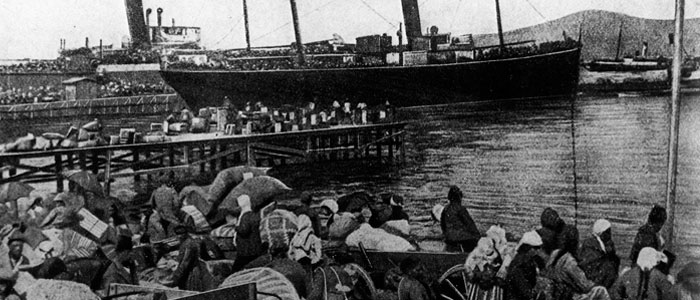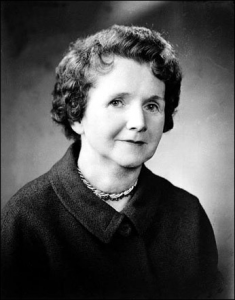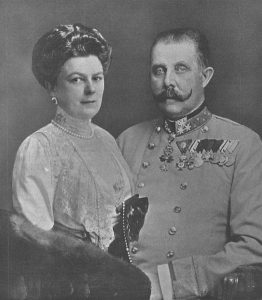The year is 1920. The Treaty of Sevres has just been signed on August 10, 1920 effectively ending the rule of the Ottoman Empire and breaking it apart into multiple fragments. The War to End all Wars has ended, so conflict should end, right? Nope. With the signing of the Treaty of Sevres and the Armistice of Moudros in 1918, started the buckling of the Ottoman Empire.1 Sensing the oncoming fall of the Ottoman Empire, different nationalist groups began to form, each one seeking self-determination by demanding a state for their own peoples. In this time, the Young Turks movement was born. Demanding a Turkish state was based on the principles of military strength, modernity, and Turkishness. Thus, the war of National Independence began and they foughtagainst Armenian forces who were also seeking statehood. Later the fight move against with the Greek military as they began to take Ottoman territory. Aided with the Soviets with a treaty signed in 1921, the war finally came to a close with the signing of the Treaty of Lausanne of 1923.2 After creating the Republic of Turkey, the Young Turks yearned to push out minorities or ‘non-Turkish’ people out of the area. The Young Turks pushed for the idea of a unified, homogeneous society that followed Turkish tradition, culture, and religion. These ideas came out of the Balkan Wars where nationalism had been used to eliminate non Turkish peoples from the Ottoman Empire. In response, Greece seized Turkish territories and began to discriminate against the Muslim minority. Both sides seized property and used deportations as a way to create a homogeneous society. During the fighting prior to the Treaty of Lausanne, Greek nationalists fled the region to Anatolia and Muslims from Greece fled to Turkey.3

The convention concerning the exchange of Greek and Turkish people is written as a separate convention with the same authority as if it were a part of the Treaty of Lausanne. As the title states, it deals with the Greek and Turkish peoples who were living in as minorities in these territories (at least in the eyes of the newly formed states they resided in).4 The people of Greek decent who live in Turkey were considered Greek and vice versa. The convention defined. This means that Turks who were a part of the Greek Orthodox religion must go to Greece and the same for Muslim Greek nationals who were to be sent back to Turkey. The exchange was also compulsory meaning it was required by law so even if the person was and has been a Greek national their whole life, but worshiped Muslim, they had to emigrate to Turkey. Even prisoners of war or criminals had to be exchanged as stated in article 6 of the convention stating that “in the event of an emigrant having received a definite sentence or imprisonment, or a sentence which is not yet definitive, or of his being the object of criminal proceedings, shall be handed over by the authorities of the prosecuting country to the authorities of the country where he is going in order to serve or receive the sentence.”5 Those who had to leave the country could not go back without the proper authorization from the Turkish or Greece government, respectively.6 Though, there were exceptions to the exchange. For instance, Greeks living in Constantinople (now Istanbul) and Muslims living in Western Thrace were unaffected by the exchange. The reason being, as stated in Article 2 of the Convention, all Greeks established before the 30th October, 1918, within the areas of the prefecture of the City of Constantinople, as defined by the law of 1912. Under that same article, it was noted that all Muslims established in the region to the east of the frontier line laid down in 1913 under the Treaty of Bucharest could remain.7

As of May 1, 1923, 700,000 people were removed from their native soil and made de facto refugees. The convention also confirmed the status of refugee for an additional 1 million displaced people prior to the convention during the Balkan Wars.8 These displaced peoples were allowed to take their property, but any immovable property, such as homes, had to be liquidated and given to the owner the amount it was worth. The liquidation process was up to the authorities and to the Mixed Commission. A Mixed Commission, as defined by international law, are instruments of arbitration that have been established by bilateral or multilateral treaties.9 The Mixed Commission, set up under Article 11, was created one month prior to the enforcement of the convention, was set up in Greece or Turkey and consisted of 4 members, each a part of a high contracting party, and an additional 3 from the League of Nations that did not take part in WWI (1914-1918). The Mixed commission had the power to set up smaller sub commissions made up of one Greek, one Turkish, and a neutral member in order to be considered valid and could be set up anywhere the Mixed Commission saw fit. In general, as stated in Article 12, the Mixed Commission had full power to take measures needed to execute the Convention and to decide all questions regarding the Convention.10 Though the Convention went into depth on the relocation of property and the powers of the Mixed Commission, it failed to list the practical matters. Practical matters being food, clothing, shelter, health care, and integration programs if any should be instated. Wording in the document also led to challenges to both nations,especially to some minorities that were neither Greek nor Turkish that neither country wanted. For example, the Greeks did not want the Albanians or the Roma (Gypsyies) and Turkey did not want the Armenians or Assyrians.11
The social and economic effects on both sides were significant. Unlike Turkey, Greece had large swaths of non arable land with a majority of the population engaged in agriculture even though it was not the most important economic activity. Even though Greece had incorporated fertile lands from Thessaly in 1881 and then again after the Balkan Wars, the additions of approximately 1.5 million new citizens, led to changes in the land tenure system. The Land tenure system varied from region to region in Greece with larger farm estates in the north. Fortunately, the Greek government made changes to the distribution of land since it was primarily based on social/economic class and decided to break apart larger estates in order to give land to peasants back in 1917. Hence, when the refugees arrived, there was an uptake in agricultural production.12 Greeks also played a role in Turkey’s economy through different industries such as factories and iron works, flour mills, along with smaller industries like tanneries, soap and dye works, box making for agricultural products, confectioneries, and beverages.13 Turkey lost these economic benefits when they lost 1.5 million workers. The reason these workers were so significant is that by 1919, Greeks owned 75% of large industrial plants more than any other group which included smaller home industries, small workshops, manufacturers, and factories. Greeks owned about 49% of all industry and crafts. When the exchange happened, Turkey tried to make up for these losses trying to fill the void the Greeks left behind. This, however, led to more competition between the Greek and Turkish economies.14
The social impact was mostly towards minority policy and nationalism prior and after the Treaty of Lausanne. Even though the Treaty itself safeguarded minority rights, over time that safeguard went against the changing ideas of nationalism. The process of nation building which at that time favored unitary and homogeneous constructions of national identity. The transition hit Turkey minority policy the hardest since it went from Ottoman plurality to a form of unitary nationalism under the Young Turks which centered on Turkish culture, language, and Muslim religion. Similar to this, the Greeks wanted to built a homogeneous community who spoke Greek with the official religion as Greek Orthodox. Both countries created assimilation programs based on these ideas of nationalism after the Treaty of Lausanne forcing minorities to follow the desired unitary model.15 Another change in social policy was the idea of minorities, especially in Turkey. The Turkish delegation at the time even debated with the Allied powers during the convention with the claim that there were no minorities in Turkey except non-Muslims. The Turkish delegation strongly pushed this standpoint since they believed that if a broader term were enacted, it would become a major security threat to their country since many Muslims in Turkey at the time were of different ethnic and lingual groups.16 The convention mapped identity based on religion rather than on actual ethnic or linguistic status.

The Greeks called this event the ‘Asia Minor Tragedy’ because they made up the majority of the displaced peoples with more than 1 million compared to 400,000 Muslim Turks who were displaced. For the Turks, this was seen as a unification of the Turkish peoples and a major victory for State of Turkey, but the exchange was wholly removed from the historical narrative for the Republic of Turkey. Even articles written by the late Omer Lutfi Barkan, known for his articles on comprehensive immigration policies and resettlement in Turkey in the late 1940’s, refrained from any critical examination of the Exchange.17 Refugees on both sides struggled to learn Turkish or Greek respectively and to adapt to the different lifestyles and cultures which impacted many families, but with no other option, they assimilated. However, in the 1990’s the refugees and their descendants were allowed to visit their ancestral towns. Projects to make up for the removal of peoples have been created on both sides to help ease the remaining refugees, especially the ones in Instanbul’s Tuzla municipality. On September 4, 2013, 90 years after the Population Exchange, some were able to go back to see their homeland. The project also invited people not affected by the Exchange to see the journey the refugees took from the Karakoy Cruise port in Istanbul to Kavala, a coastal city in Northeastern Greece. Its main focus, to raise awareness of the rarely mentioned exchange to Turkish citizens and to highlight the problems both communities had faced with the exchange.18 There are now reciprocal visits by both Greeks and Turks as part of a cultural project that is supported by the European Union and the Foundation of Lausanne Treaty Emigrants.19
.
- Brian Bonhomme and Cathleen Boivin, “Milestone Documents in World History: Exploring the Primary Sources that Shaped the World,” (Dallas: Schlager Group, 2010), 1280. ↵
- Europe since 1914:Encylopedia of the Age of War and Reconstruction, 2006, s.v., “Ataturk, Mustafa Kemal (1881-1938),” by John Merriman and Jay Winter” ↵
- Salem Press Encyclopedia, 2014, s.v. “Convention Concerning the Exchange of Greek and Turkish Populations,” by Josephine Campbell. ↵
- Brian Bonhomme and Cathleen Boivin, “Milestone Documents in World History: Exploring the Primary Sources that Shaped the World,” (Dallas: Schlager Group, 2010), 1299. ↵
- “Convention Concerning the Exchange of Greek and Turkish Populations,” The American Journal of International Law 18, no. 2, (April 1924): 85 ↵
- Salem Press Encyclopedia, 2014, s.v. “Convention Concerning the Exchange of Greek and Turkish Populations,” by Josephine Campbell. ↵
- “Convention Concerning the Exchange of Greek and Turkish Populations,” The American Journal of International Law 18, no. 2, (April 1924): 84. ↵
- Salem Press Encyclopedia, 2014, s.v. “Convention Concerning the Exchange of Greek and Turkish Populations,” by Josephine Campbell. ↵
- Dictionary of American History, 2003, s.v. “Mixed Commissions,” by Gregory Moore. ↵
- “Convention Concerning the Exchange of Greek and Turkish Populations,” The American Journal of International Law 18, no. 2, (April 1924): 88-89. ↵
- Salem Press Encyclopedia, 2014, s.v. “Convention Concerning the Exchange of Greek and Turkish Populations,” by Josephine Campbell. ↵
- Aytek Soner Alpan, “The economic impact of the 1923 Greco-Turkish population Exchange upon Turkey,” (METU, 2008), 38, 42-43. ↵
- Aytek Soner Alpan, “The economic impact of the 1923 Greco-Turkish population Exchange upon Turkey,” (METU, 2008), 80-83. ↵
- Aytek Soner Alpan, “The economic impact of the 1923 Greco-Turkish population Exchange upon Turkey,” (METU, 2008), 84, 92-93. ↵
- Nora Fisher Onar, “How deep a transformation? Europeanization of Greek and Turkish minority Policies,” International Journal on Minority and Group Rights 17, no. 1, (2010): 3-5. ↵
- Yesim Bayar, “In pursuit of Homogeneity: the Lausanne Conference, minorities, and the Turkish nation,” Nationalities Papers 42, no. 1, (January 2014):7-8. ↵
- Yildrim Onur, “The 1923 population exchange, refugees and national historiographies in Greece and Turkey,” East European Quarterly 40, no. 1, (Spring 2006): 45. ↵
- “Turks displaced in population exchange visit homeland after 90 years,” BBC Worldwide Monitoring, August 8, 2013. Accessed April 4, 2018. ↵
- Isil Ocal “The Great Population Exchange between Turkey and Greece,” Aljazeera World, February 28, 2018. Accessed April 4, 2018. ↵



42 comments
Destiny Renteria
It sucks that there was a collapse due to the Ottoman Empire and for the countries to divide is astounding. The author did a great job in explaining the emotions through this article and how many had to move due to the fact that, again, the countries were divided into states. It really makes you think about today and how we are still having this problem, where people are fleeing their country because it is so bad it is not something they can bear to live with. Overall this was a great article with much information!
Elias Garza
The thought of going into war is personally terrifying. I have never been the type to harm anybody but I understand that people who go to war have to do their duty. It saddens me that wars never stop. I hope and pray for world peace one day. However, this article was imforamtive and I would read it all over again if i needed to.
Lewis Wilson
Really liked this article and specifically the topic. I enjoy reading articles about topics that kind of go under the radar in terms of popularity and what we are taught about. I have never heard of this issue, and enjoyed reading about people from a different of Europe to me. This article was well written but unfortunately has relevance with issues we are still being faces with almost 100 years later.
Caroline Bush
Interesting article! Before reading this article I had no idea that each country became its own state after it was divided due to the collapse of the Ottoman Empire. Its really hard to imagine that those poor people had to move from their own homes and go to a completely different country. I could not begin to imagine having to leave my home to another country simply because people were telling me to. Overall this article was very interesting and I found myself really enjoying the details included. I really enjoyed how the article did not drag during the story and how the pictures really gave us an idea about what these people were going through.
Kailan Pena
I cant even begin to imagine how those people felt being stripped from their home a place they grew up a place they were comfortable with a place they started their life at. Just to be placed in an unfamiliar place where they had to start all over again a clean slate. Its sad to know that this topic has been over looked and not mentioned and im barely hearing of it now by reading this article.
Anthony Robledo
Personally, the title is too long and boring. It really threw me off, but then i started reading and really enjoyed it. You do a great job setting the mood in the introduction. Your writing skills are great and it shows within the article. It was sad to see how events like this are unrecognized and relatively unknown. Keep up the good work. Your article is really great and deserves an award.
Gloria Baca
Reading about how individuals are forced to flee their homes is always a hard topic. To think that it is happening at this moment is incredibly sad as well. This article was extremely informative and I loved how it described the political situation. It is always sad to read about individuals fleeing countries like Syria because of the government but I believe it is important to let it be known. Overall your article was great and it expressed political issues perfectly!
Timothy ODekirk
The emigration between thee Greeks is an interesting story to read. This article was highly engaging about the forced emigration of the Greek people during the fall of the Ottoman empire. In addition, this story is quite sad to read about due to Greek people being forced out of their homes to another location for emigration. This process almost seems similar to what the Nazis did to the Jewish people about 20 years later; instead, the Nazis killed the Jewish families that they forced to emigrate. Overall, this was a highly intriguing article about the forced emigration of the Greek people during the fall of the Ottoman Empire.
Johnanthony Hernandez
Great article, I enjoyed reading it. We forget that that issues like this are still exist and have existed for centuries. If we look back in history, we can see it time and time again. In more recent years we see it with the Syrians that were being forced out of their homes and having to move to a new country or area.
Rafael López-Rodírguez
I really enjoyed reading this article! It is devastating to read that many people were forced out of their homes to a country unknown to them. While reading this it reminds me of what is going on currently in the US with many people being deported and being sent to countries unknown. This can prove that the world as a whole has not changed and more people need to stand up and make a change. Great job!